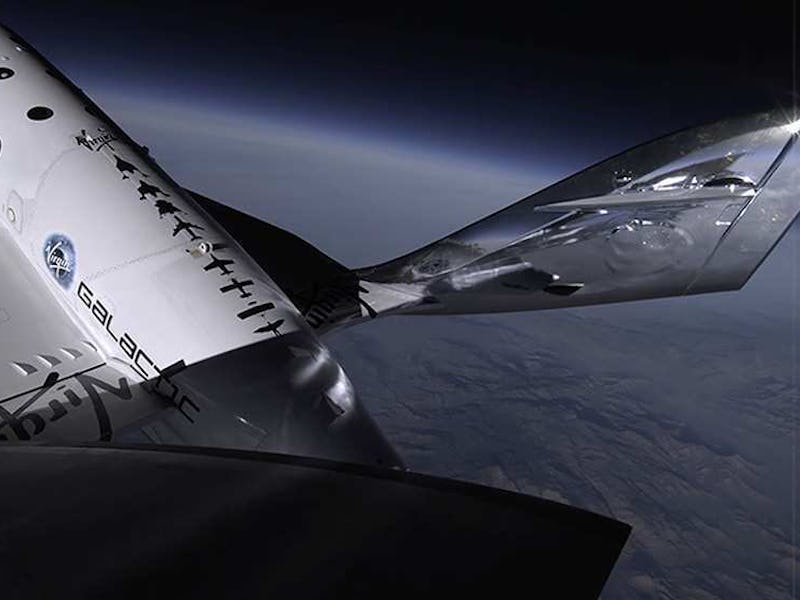The rise of the commercial space industry has brought light to relatively new players like SpaceX and Blue Origin, but these companies have the literal luxury of being founded by billionaires. The rest of the private space industry is small and scattered, working to break through in a field dominated by mature, veteran businesses. But they key for these newcomers to succeed is to remember that when it comes to space, “the gold is space data.”
Those are the words of wisdom imparted by Chuck Beames, a consultant for the aerospace industry and most recently the former president of Vulcan Aerospace. At this week’s American Institute of Aeronautics and Astronautics (AIAA) forum in Grapevine, Texas, Beames and others discussed the role of disruption in space, and the way in which the private sector can not just make a name for themselves, but also work to reinvent the industry and augment the drive for innovation.
Like many others, Beames emphasized the need for companies to make money through space in order to succeed. But while several experts are still unsure of exactly what kinds of operations and work will help make a space company profitable, Beames thinks the solution is data.
From left to right: Robie Samanta, Chuck Beames, Carissa Christensen, Mark Lewis, George Whitesides
The human appetite for information “has always been unbounded” in the goal to elevate people’s way of life, he says. The problem is the that the cost to produce and unearth such data has been limited by costs. And he believes the biggest way disruption can help advance the spaceflight industry is through funding — the influx of private equity and private capital into the industry, resulting in what he likes to the “Space Race 2.0”.
“Money is going to be made, and it’s going to be in data,” he says. You need look no further than a company like Uber which is fundamentally tied to the success of GPS technology. “It’s a space app,” Beames argues. “This is why I think we’re in the infancy of a revolution.”
The new space race, in Beames’ view, is a contest to make spaceflight as cheap as possible. Similar to the way the automotive industry took off when Henry Ford and others began find ways to transfer value to the customer and take costs out, the space industry is doing the same thing through smaller satellites, reusable rockets, easier access to orbit, and other schemes. You can already see examples of these in cubesats, landing rockets back on Earth after launch, Virgin Galactics design for a spaceplane to replace booster rockets entirely, and more.
These ideas are, as Beames says, “igniting the indefinite expansion of possibilities.”
Of course, disruption is not without its problems. Mark Lewis, an expert in hypersonic technologies from the University of Maryland and the former chief scientist of U.S. Air Force, told Monday’s panel there’s a keen difference between invention and innovation, and companies need to know which is their strength to play with. The Wright Brothers, he says, were great at inventing the first airplane, but “they had trouble inventing the second airplane” — they simply didn’t know how to improve on their groundbreaking design. They were inventors — not innovators. Others, like Apple, are famous for not really inventing new technologies, but rather innovating upon them in order to better conceive of new products.
And ultimately, new actors to the industry are extremely important. George Whitesides, the CEO of Virgin Galactic and The Spaceship Company, says the federal government is still critical in investing money into those entry-level companies and providing the contracts they need to test out and validate new cost-cutting technologies.
Furthermore, it’s unwise to believe Silicon Valley lessons can apply ubiquitously to the space industry. The favorite lines of “fail early, fail often” don’t really apply to aerospace, says Lewis. The federal government can’t do that, nor can established companies like Lockheed Martin. “We have to strike a cautionary note.”
Nevertheless, most are hoping disruption can do more than just result in minor improvements and innovations to space. People are dreaming big. With the last word at the panel, Whitesides asked the audience, “Do you want to work on an app, or do you want to open up the universe? I want to open up the universe.”
